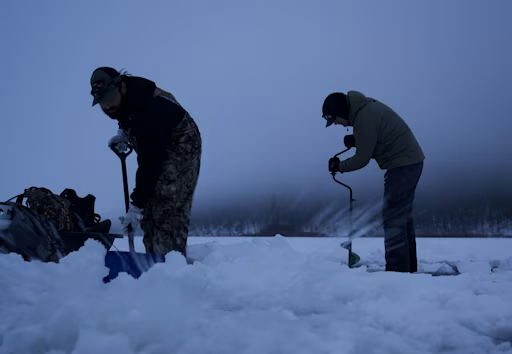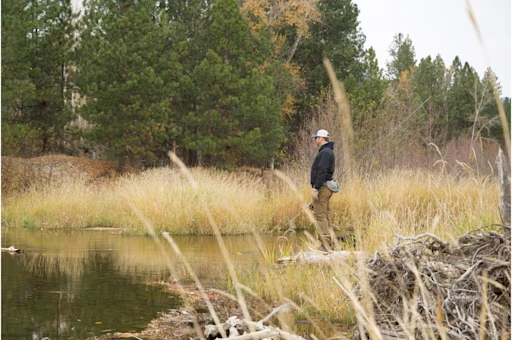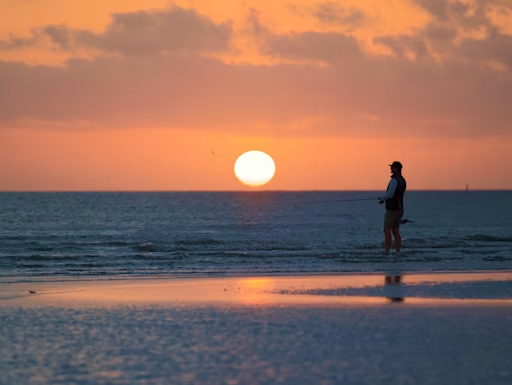Bass on the grass: Slippery truth about fish slime coat
Is putting your freshly caught bass on the grass a bad idea? What is a slime coat and how can you protect it? Find out more.
Share this article

I often scroll through my feed and see pictures posted by casual anglers, of fish on the grass next to a rod or a shoe, in an attempt to show size. Accompanying this is the inevitable harbinger of doom in the comments section with “That’s going to kill that fish!”, or, “Keep Bass off the Grass Idiot!”
I have to admit, I have been on both sides of this fence, posting similar pictures and making similar common mistakes when handling fish as a newcomer to the sport. I have also been the guy blowing the slime coat whistle in the comments section as I learned more about these animals. The truth seldom lies at one end of the spectrum, however, like most things in life. In this case, science isn’t so black and white. I can tell you this though, the more experienced I become at fishing, the closer I get to straddling the proverbial slime coat fence.
So what’s the truth then? Well… it’s hard to say. I spent the last hour or so scouring the web for any kind of true scientific research on the subject and came up mostly empty-handed. I came across a few sites including one on KBF with exact (and suspiciously perfectly rounded) numbers citing that 10% of the LMB (Largemouth Bass) that die being caught in competition, die from losing their slime coat. None of these sites referenced any other material though to back up these claims. I also came across some scientific and educational sites that briefly covered the topic and cited research to multiple journals, but provided scant few links such as the UoF EDIS website (a nice article in its own right).
The truth may be surmised by making a series of logical steps in what we DO actually know about a Fish’s slime coat. Fish have slime coats. The slime coat must have some biological function. The most obvious function of a slime coat would be a protective layer. Damaging protective layers, skin or otherwise, results in negative side effects, such as infection. Putting a fish on the ground could disrupt the slime coat. Therefore it probably isn’t a good idea to do it if you care about conservation.
Will it kill the fish if you put it on the ground? Most likely not, but is it possible? Obviously, “yes,” would be a sane answer. Let’s not forget that hardiness amongst our piscine friends varies from species to species. Take Largemouth Bass and Creek Chubs for this dichotomy. I have caught Largemouth Bass with scars on them that tell tales of a wound that should have killed just about any other animal I have ever encountered, but somehow these fish not only survived, they thrived. Some Bass have had quarter-sized holes in them, others had been cut almost half-way through the middle by propellers on boat motors, Snapping Turtles or who-knows-what-else, and I have even caught fat, healthy Bass with no eyesight. However, I also have a memory of a near state record Creek Chub I caught last year accidentally on a Whopper Plopper while fishing for Smallmouth. One of the trebles on the lure just barely touched the stomach area on the Chub and the thing damn near just exploded. I wasn’t happy to hurt a fish on accident, but the incident definitely highlighted for me the fragility of certain species.
Back to things of this nature not being black and white, perhaps it is sage advice to find a healthy median here. The paraphrased and amended (by me of course) list of Do’s and Don’t inspired by the UoF Bed Fishing website goes as follows:
Best Practices of Fish Handling:
Practice catch, (photo), release
Minimize the time the fish spends out of the water
Avoid rough handling the fish.
Avoid grass, carpet, etc where possible
Release the fish exactly where it was caught
Land the fish on the appropriate tackle
Support the body of larger fish (2lbs+) when lip-holding it
Keep chemicals, such as bug spray off your hands and wet your hands before handling a fish
Routinely cut smaller fish from populations that grow out of control if you manage the water
Feed/stock your water properly
Fish Handling Don’ts:
Keep fish caught when spawning or with eggs
Keep fish out of the water for longer periods of time, or store in stasis (unless eating them)
Handle the fish roughly, release by throwing upward, or leave hooks in the mouth
Catch or keep too many fish from one area
Exhaust a fish for fun by fighting it excessively / small tackle/light drag
Kill a fish before making sure it was an invasive species (ie Bowfin, etc)
So, in summary, let’s keep Bass off the Grass, it’s not good for them, and that we can be sure of. But don’t be that guy or gal who insults someone for mishandling a fish. Chances are that they’re just a bit more casual than you and need educating, not insulting.
Tight lines Fishbrain fam and don’t forget to grab some tools and accessories that will help you handle and land fish in the Fishbrain Shop! Be conscientious to fish and fellow alike!

Download the Fishbrain app and access the best fishing spots in your area
Related blog posts
Discover the best spots, techniques, and gear for successful fishing in urban areas and city waters on Fishbrain.

Master the hardwater season with advanced ice fishing tips . Learn how to find fish faster, refine your search and adjust presentations to catch more fish all winter long.

Your guide to Victoria’s best fish to catch in rivers, lakes, and coastal waters. Learn prime species, fishing tips, and key regulations




